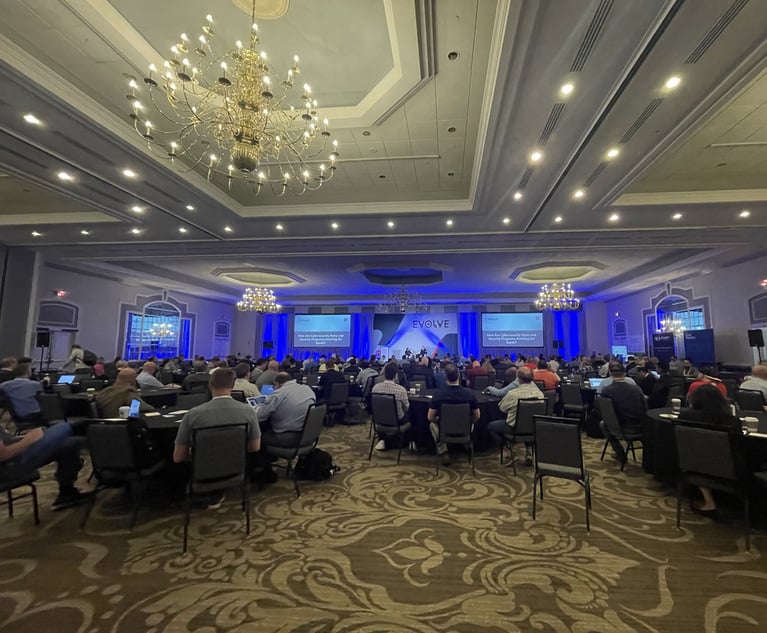Liberty Hikes Reserves, CEO Calls Market Irrational
|By Susanne Sclafane
|NU Online News Service, March 3, 12:23 p.m.EST?Liberty Mutual announced a pollution reserve hike ofmore than $300 million yesterday?an action that did not disturb animproving earnings picture for 2004.[@@]
|Additionally, Chairman and Chief Executive Edmund Kelly said thecompany has seen competitors begin to engage in unsoundunderwriting that irrationally lowers prices.
|While the reserve hike nearly doubled the level of theBoston-based insurer's pollution reserves, fourth-quarter netincome increased 30 percent to $565 million from $435 million in2003.
|Liberty's net income for the year jumped 46.3 percent,increasing to $1.2 billion from $851 million in 2003 in spite of$697 million in net pre-tax catastrophe losses in the thirdquarter.
|The 2003 result had been adversely impacted by a third-quarteraction to boost pre-tax reserves related to asbestos losses $331million, and prior-year reserve charges totaling close to $400million for non-asbestos claims, including California workers'compensation claims.
|The 2003 asbestos charge, which brought asbestos reserves abovethe $1 billion level, was one in a string of small reserve charges(averaging $250 million each) over a period of five years.
|The 2004 pollution pre-tax charge?$316 million on a net basis($327 million, gross)?brought year-end net pollution reserves to$553 million, up from $287 million held at the beginning of theyear.
|During a conference call, executives did not report any unusualclaims activity that prompted the pollution reserving action. Infact, Corporate Actuary Robert Muleski reported some favorabletrends, including declines in newly reported claims.
|The actuary also described annual claim-by-claim internal reviewprocesses by a dedicated unit of claims and legal professionalsthat have been in place for 25 years.
|"In 2004, we?engaged an independent consultant to give a freshlook at our exposure in this area and to offer a look at ourpractices," he said. He added that when the consultant indicatedreserves above Liberty's carried levels, the insurer decided toconservatively book $50 million more "to recognize inherentuncertainty in establishing pollution reserves."
|"We believe we fully addressed reserve needs in this area," hesaid.
|Turning from reserving to pricing, Mr. Kelly painted a pictureof unsound trends in the marketplace.
|"Generally we would say it's a rational market, but we areseeing?finally?some behaviors that make us recall 1997 and 1998.And we are going to have to?walk away from business in commerciallines," he said during the conference call.
|He gave a particular example of a large national account, forwhich a competitor priced the excess workers' compensationcomponent with a price 30 percent below Liberty's and set fees forservices 35-40 percent lower. "We're never happy to lose a largepiece of business. But irrational competition is starting to showits ugly head," he said.
|When asked by an analyst to describe the competitor, Mr. Kellyresponded, "In large national account business, there are a handfulof household names" participating in the market.
|The excess workers' comp pricing mistake "won't emerge for four,five, six years. So it's very easy for underwriters to doirrational things." But the degree of irrationality in thisinstance is surprising at this stage of the cycle, he said
|"There's much more aggressive pricing than one would haveexpected given the comments [being reported] out in theindustry."
|Mr. Kelly also said that in other areas of the market, "somemoderation of price increases" was becoming apparent, but that itwas not "too disturbing," unlike the concerning large accountsituation.
|"On an account of that nature and that size, to see behaviorsuch as we saw, that is indicative that the price discipline theindustry is talking about goes by the boards very quickly when thesituation arises? Although it's a one-off case, the canary has sortof dropped dead in the cage," he said.
|He went on to respond to a question about the length of thecycle offering little optimism. "We all talk about SARBOX[Sarbanes-Oxley corporate governance rules] and closer scrutiny andall that. [But] humans will misbehave when they can."
|Mr. Kelly also commented on two areas where significant pricedeclines are becoming evident?in property and directors andofficers, seemingly seeing less problem arising from the propertydeclines.
|"When one makes allowance for catastrophe losses, propertyresults are still strong. So there is room for price reductions,"he said, noting that adequate returns are still achievable in spiteof them.
|In the D&O area, on the other hand, he said that 15 percentprice declines "just don't make a lot of sense," given the level oflitigation.
|While Mr. Kelly was bearish on pricing trends, he said heremains bullish on mergers and acquisitions?in the industry and forLiberty.
|"The North American market is a mature market?Consolidation isgoing to happen. It's clear," he said.
|"We have been a very aggressive acquirer. We view it as a corecompetency at this stage," he said, noting, however, that he was alittle bit concerned about what prices will be for targetcompanies. He noted a particular example in which a Japanesecompany paid six-times book value?multiples of what Liberty waswilling to offer for an Asian book of business.
|During the conference call, Chief Financial Officer DennisLangwell reported that strong net written premium growth for 2004was driven by M&A activity.
|Liberty net premiums grew nearly 20 percent, or $2.8 billion, to$17.3 billion in 2004, he said, noting that $1.3 billion of thejump related to acquisitions (including $977 million from thePrudential Financial acquisition announced in 2003).
|For the year, the overall combined ratio improved to 102.9,compared to 104.5 in 2003.
|During the conference call, executives were also asked aboutasbestos reserves, which were not increased in 2004 as they hadbeen in 2003.
|"Nothing has happened since then that has led us to question ourreserves," Mr. Kelly said. Still, he said that Liberty Mutual woulddo another ground-up study this year. "But at this stage, there'snothing that we see that would lead us to believe there will be anincrease or decrease for asbestos," he said.
Want to continue reading?
Become a Free PropertyCasualty360 Digital Reader
Your access to unlimited PropertyCasualty360 content isn’t changing.
Once you are an ALM digital member, you’ll receive:
- All PropertyCasualty360.com news coverage, best practices, and in-depth analysis.
- Educational webcasts, resources from industry leaders, and informative newsletters.
- Other award-winning websites including BenefitsPRO.com and ThinkAdvisor.com.
Already have an account? Sign In
© 2024 ALM Global, LLC, All Rights Reserved. Request academic re-use from www.copyright.com. All other uses, submit a request to [email protected]. For more information visit Asset & Logo Licensing.








